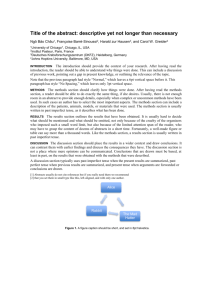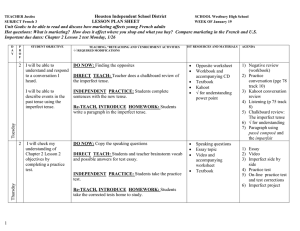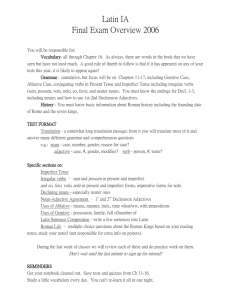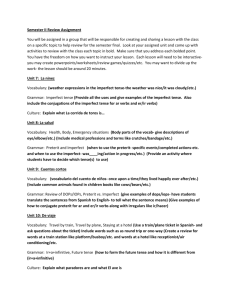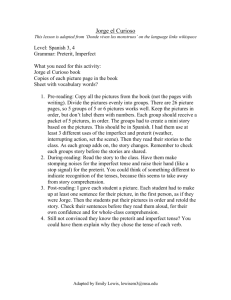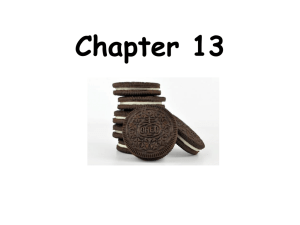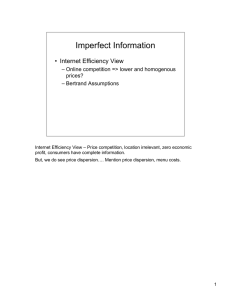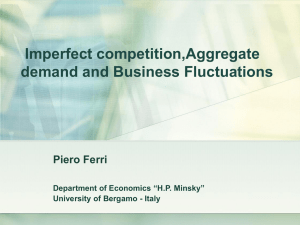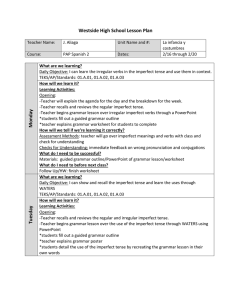Past Imperfect
advertisement
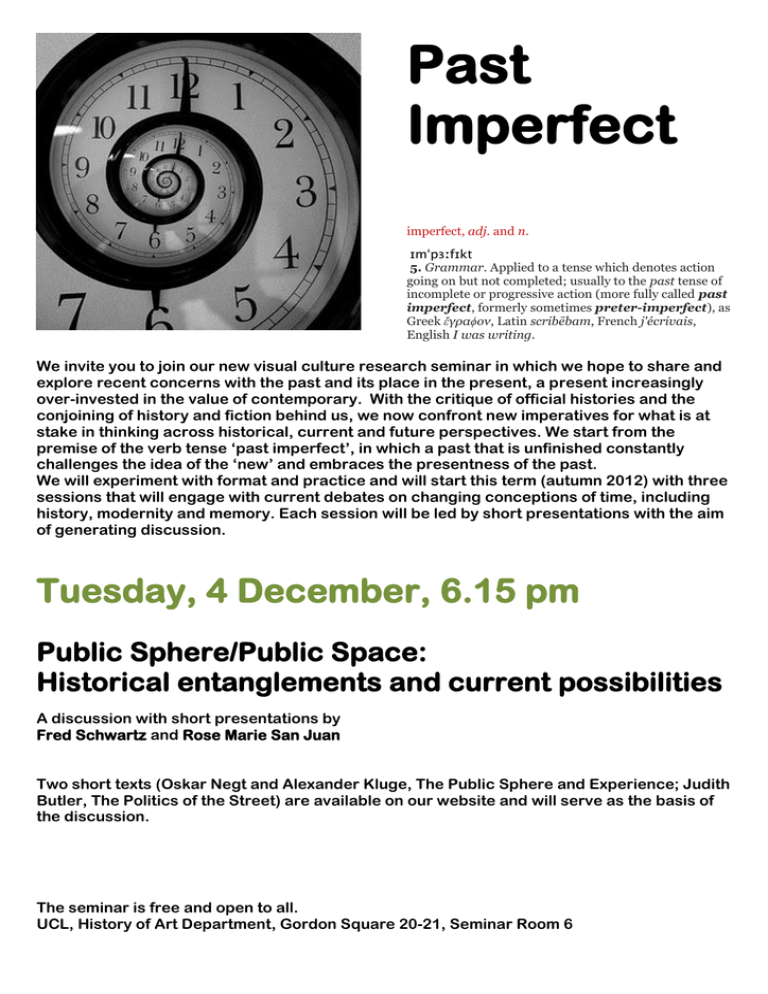
Past Imperfect imperfect, adj. and n. ɪmˈpɜːfɪkt 5. Grammar. Applied to a tense which denotes action going on but not completed; usually to the past tense of incomplete or progressive action (more fully called past imperfect, formerly sometimes preter-imperfect), as Greek ἔγραϕον, Latin scribēbam, French j'écrivais, English I was writing. We invite you to join our new visual culture research seminar in which we hope to share and explore recent concerns with the past and its place in the present, a present increasingly over-invested in the value of contemporary. With the critique of official histories and the conjoining of history and fiction behind us, we now confront new imperatives for what is at stake in thinking across historical, current and future perspectives. We start from the premise of the verb tense ‘past imperfect’, in which a past that is unfinished constantly challenges the idea of the ‘new’ and embraces the presentness of the past. We will experiment with format and practice and will start this term (autumn 2012) with three sessions that will engage with current debates on changing conceptions of time, including history, modernity and memory. Each session will be led by short presentations with the aim of generating discussion. Tuesday, 4 December, 6.15 pm Public Sphere/Public Space: Historical entanglements and current possibilities A discussion with short presentations by Fred Schwartz and Rose Marie San Juan Two short texts (Oskar Negt and Alexander Kluge, The Public Sphere and Experience; Judith Butler, The Politics of the Street) are available on our website and will serve as the basis of the discussion. The seminar is free and open to all. UCL, History of Art Department, Gordon Square 20-21, Seminar Room 6
